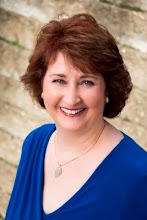My
mom will be 93 in October. Feeling her abilities diminishing, she
decided she wanted one last trip to her hometown of Bennington,
Vermont. So in August we made the three hour drive north for a long
weekend. There were several places Mom especially wanted to visit –
places that had meaning to her from her youth – the town library,
her old high school, the clock in the town center, the former Hotel
Putnam that, among other things, once housed her uncle’s pharmacy,
and the Old First Church. She also wanted to visit the graves of her
parents, brothers, and other relatives.
I’ve
always had a fascination for cemeteries so the burying grounds are of
particular interest to me. Depending on their age and condition, they
may be creepy, haunting, peaceful, or beautiful. In any case, they
draw me in. The tombstones themselves are a special source of
beguilement. I love studying about the correlation between the change
in tombstone engravings and the layout of cemeteries and the changes
in societal views of death and the afterlife between the 17th
and 19th
centuries. These are most fully on display when a cemetery spans
centuries as does the one at the Old First Church.
There
is much more to read in a tombstone than just the inscription. The
shape, size, and substance of the stone and the images engraved on
them give powerful hints as to their age and the outlook of those
buried beneath them.
In
our Bennington travels we visited two final resting places. One was
the burying ground owned by and adjacent to the Old First Church. The
Church’s congregation was first organized in 1762 and the current
church was built in 1805. Its
extensive burial grounds are the interment site of soldiers from the American Revolutionary War, both American and British, as well as Bennington’s
earliest mayors, Vermont’s early governors, and other prominent
citizens.
In
one section, the four sides of a stone pillar tell the stories of the
burying ground’s Revolutionary era inhabitants.
 |
| One side of pillar honoring Revolutionary soldiers buried here |
 |
| American Soldiers believed buried in Old First Church burying grounds |
 |
| Hessian (Brunswick) Soldiers believed buried in Old First Church Burying Ground |
 |
| David Redding - Executed Loyalist |
 |
| Details regarding Redding's Execution |
It
is also the final resting place of the great poet, Robert Frost and
many of his family members. Fittingly, an elegant birch tree stands
watch by his grave. Visitors are invited to reflect on our attitudes
about death through the medium his poem, “In A Disused Graveyard”.
 |
| Grave site of Robert Frost and Family Members |
 |
| Mom and my cousin, Patty, reflect near the birch tree at Robert Frost's Grave |
 |
| Frost's Poem "In A Disused Graveyard" |
Closer
to our own time period, was our stop at Park Lawn Cemetery where my
grandparents, uncles, and other relatives are buried. Compared with
older tombstones, I find the more modern ones a bit boring – no
disrespect to the dead intended. It’s just that most contain a
name, dates of birth and death, and not much else. Unless one expends
an enormous amount of money, it’s likely the only viable option, so
I quite understand. It’s just that it feels cold and uninteresting
to me. However, I did see one grave marker in this cemetery that told
a compelling story. It is pictured below.
 |
| Grave Marker of William Halford Maguire |
The
inscription reads:
William
Halford Maguire
1911
– 1945
Lt.
Col. U.S. Army
West
Point ‘32
Chief
of Staff, Davao, Mindanao, P.I. when Japan attacked, 1941
Japanese
prisoner of War 2 ½ years.
Survivor
of three shipwrecks
Subjected
to extreme brutality of Japanese captors.
Died
Feb. 9, 1945 in Tokyo, Japan, weighing less than 59 pounds
Among
awards: Silver Star and Legion of Merit
1933
– Married Ruth Felder, San Antonio, TX.
Children:
Mollie Maguire Qvale
William
Halford Maguire, Jr.
Imagine
all the inspiration for a story to be gleaned from this one grave
marker!
As
it happens, I am able to add a bit to this story as the above marks
the grave of my mother’s cousin. Hal, as she knew him, was captured
and forced to walk the torturous Bataan Death March. The fact that he
had dwindled to 59 pounds is astonishing in any case, but even more
so when one learns that he was well over six feet tall.
Mom
remembers Hal as a good-natured fellow whose company she enjoyed.
Beyond the grave marker and the little my mom has been able to add, I
know nothing about Hal or his life and death. Though it would have to
be highly fictionalized, his story is certainly one worth telling.
As
writers, we never know when inspiration will strike. Often it comes
from the most unexpected places. But if you let the tombstones talk
to you, you may come away with the bones of great story. All the
better, perhaps, if the story is that of a person who resides in your
heart and memory or that of a loved one.











